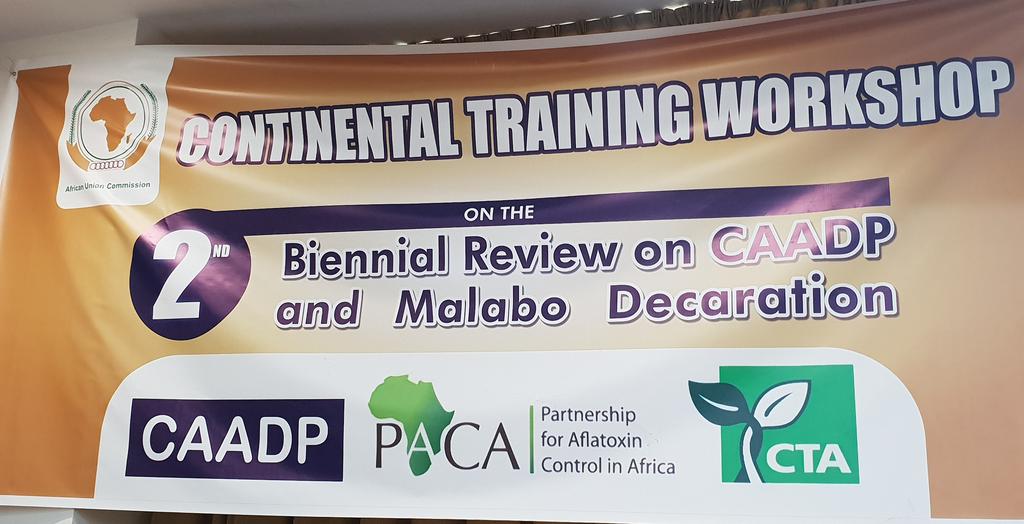Food Safety Index introduced and trained at the Continental Training on the CAADP Biennial Review Reporting Tools March 18-22, 2019, Accra ,Ghana
- 12:00 AM
- Addis Ababa
Under the process of implementing the Malabo Declaration agricultural transformation in Africa, the African Union Commission (AUC), the NEPAD Planning and Coordination Agency (NPCA) and the Regional Economic Communities (RECs) are conducting the Biennial Review (BR)mechanism for regular country progress reporting to the AU Assembly.The inaugural biennial review report and its Africa Agriculture Transformation Scorecard have been presented and approved by the Heads of State summit in January 2018.AUC, NPCA and RECs are now leading the development of the 2nd BR Report. The BR mechanism aims at strengthening mutual accountability, peer review and peer learning that will motivate increased performances of each member state to deliver on targets set for the Malabo Declaration, through a well-designed, transparent and performance-based Monitoring and Evaluation (M&E) and Biennial Sector Reporting to the AU Assembly, that should in turn, trigger evidence based planning and implementation at all appropriate levels (national,regional and continental) for the expected agricultural growth and transformation in Africa.During, the recent BR Peer to Peer Learning and Experience Sharing Conference,held in Nairobi in November 2018, Member States reviewed the indicators with the support of the Technical Working Groups and requested AUC to provide the regional trainings early enough in 2019to allow sufficient time for data collection, quality reporting and validation. The common agreement was to conduct the regional trainings at one venue taking into consideration the languages issues.In this context TWGs reviewed the indicators and methodologies and came up with a final set of 47indicatorscategorized in 23 performance categories under the 7 performance areas (themes)for reporting on the Malabo Declaration. The related reporting tools were finalized are ready to be disseminated to member states through the Regional Trainings.This training will follow a training of trainers conducted in December 2018. AUC is able with the trained experts to conduct the regional trainings and deploy the experts in the countries to provide back up support for data collection and reporting
Objective of the meeting:
For the 5days training, AUC, NPCA and RECs will bring together focal persons from Member States involved in CAADP Mutual Accountability activities including the
i) CAADP focal point,
ii) M/E expert from the Ministry of Agriculture,
iii) Representative from the institute of the National Institute of Statistics,to be:
Trained on the new CAADP Biennial Review Technical Guidelines;
Trained on the new Data Entry Tool of the e-BR which used to be Country performance Reporting Template;
Informed of the Coordination Mechanism and Continental Roadmap for submitting the Inaugural Biennial Report to the AU Assembly
Expected Outputs
The expected outputs of the training will be the following:
Participants familiarized with the content of the Technical Guidelines;Participants familiarized with the content ofData Entry Tool of the eBR;
Partcipants sensitized with the Coordination Mechanism and Continental Roadmap for submitting the Inaugural Biennial Report to the AU Assembly;Participants developed roadmaps for country roadmaps.
Expected Participants:
The expected participants will come from all 55Member States will include 3 representatives from the countries including the CAADP focal point, the M&E officer from Agriculture Ministry and the representative from the National Institute of Statistics. The meeting will also will have representatives from RECs, AUC, NPCA, Experts/Trainers, NSA and other technical partners. We expect about 200 participants to be covered by AUC.

